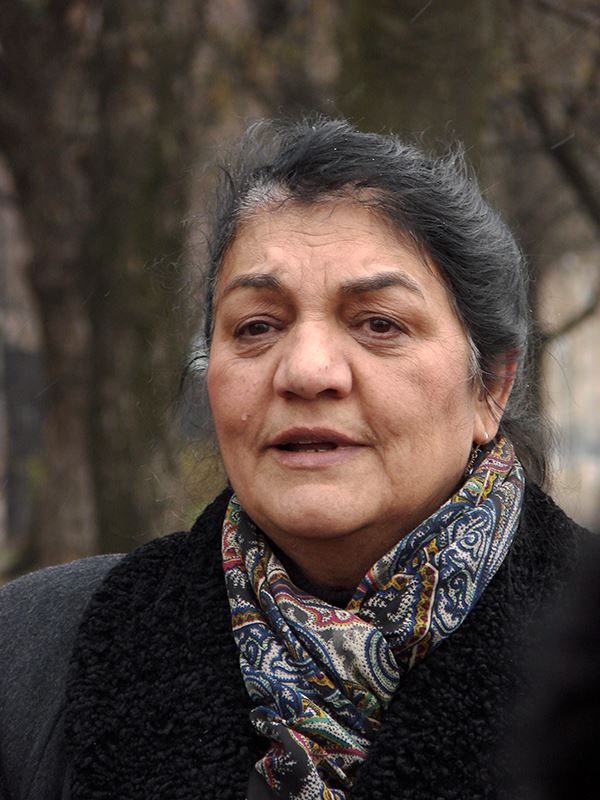
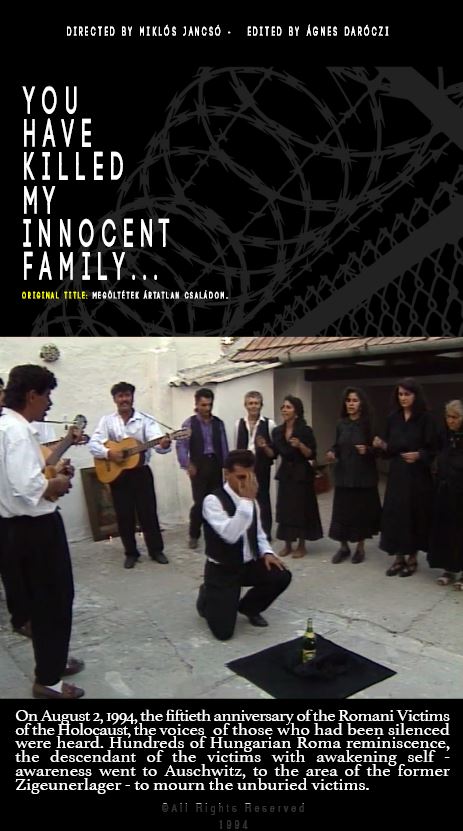
2 August 2022
You have killed my innocent family
A movie by Miklós Jancsó
A movie about the Holocaust on the Sinti and Roma | Holocaust Memorial Day for Sinti and Roma 2022 – International premiere
Synopsies
On August 2, 1994, the fiftieth anniversary of the Romani Victims of the Holocaust, the voices of those who had been silenced were heard. Memorializing hundreds of Hungarian Roma, the descendants of the victims with mindfulness and self-awareness returned to Auschwitz, to the area of the former Zigeunerlager – to mourn the unburied dead. In the same year, Miklos Jancso directed „You have killed my innocent family”. At the first part of the film, Aunt Zsuzsa Horváth’s highlights her experience as a survivor. Hungary women, men and girls were dragged away from Torony – thirteen of them never returned.
As a survivor, Zsuzsa Horvath Struggles to share her experience in the film, but, she does not look for scapegoats. She recounts what they have been through. In its simplicity, it is moving to listen to Aunt Zsuzsa’s recollection. While her brother was fighting as a Hungarian soldier on the front, her family was taken to German camps. However, Aunt Zsuzsa credits the goodwill of the locals for letting her father go because there were a lot of small children at home, they were satisfied enough with the 16-year-old girl’s journey through hell.
In the second part of the film, in the illusions and hopes of the changing regime, the Fardeske Shavora music group from Kalocsa presents in the time still existing ’break mourning’ tradition. In the film, when the mourning period is over, they apologise to the soul of the dead, cast off their grief and give themselves over to joy, dancing and merriment. The turn of events suggested by the film are carrying a message that it is time to weep for the dead So that we can live in peace.
The film was directed by Miklós Jancsó and edited by Ágnes Daróczi.
YOU HAVE KILLED MY INNOCENT FAMILY – academic essay by Katalin Bársony
Understanding the past is critical for a better future
STORIES FROM OUR PAST- A SELECTION OF FILMS ABOUT ROMANI and Sinti SUFFERING DURING THE SECOND WORLD WAR
The documentary takes a comprehensive look at the tragic extermination of the Roma in Hungary through the lens of Zsuzsa Horvath’s personal World War II memoirs. Equally important, it examines the local mechanism of genocide in Torony, Hungary. This film is set during the 1970s when several Romani intellectuals in Europe like Romani Rose, Melanie Spitta and Agnes Daroczi in Hungary collected survivor testimonies and create a new internal narrative about the sufferings of our ancestors. As a result, a new film narrative emerged that focused on the suffering of Romani communities. Many of the unspoken family histories, which appeared as a part of the efforts on inclusion in remembrance politics, resulted in a variety of artistic co-operations — films and theatrical productions. Agnes Daroczi’s interview with the Zsuzsa Horvath, the survivor, is also symbolic and encompasses the intellectual efforts to document and unveil the sufferings of Romani and Sinti communities in Europe. Romani music enriches the film; the Romani lyrics of the ballads continue to tell the story of the survivor and organically completes the story with the lyrics of the songs. This approach was innovative for the time; it brought the visual portrayal of the multi-award winner Hungarian director Miklos Jancso close to the narrative of the survivors and survivor’s families and Agnes Daroczi, his collaborator. The images of Auschwitz-Birkenau and poverty in the outskirts of Hungary, along with the traditional symbolic meaning of the (“Gyasztores”- THE END OF THE TIME OF THE GRIEVING) builds a picture of the life of the Roma in rural Hungary and enhances the visual aesthetic of the film. This film has been produced as a television documentary, but remains as a historical testament to the sufferings of Romani communities in Hungary, who never received compensation for their sufferings. (1994)
Miklós Jancsó – director
Miklos Jancsó was born in 1921 in Vac, Hungary. Jancsó received a degree in Law from the University of Cluj-Napoca in 1944. He graduated with a diploma in Film directing at the Film and Theater Academy in Budapest at 1950. His fifth feature film The Round-Up (1966) was a huge hit domestically and internationally and is often considered a significant work of world cinema. Jancsó’s films are characterized by visual stylization, elegantly choreographed shots, long takes, historical periods, rural settings, and a lack of psychoanalyzing.
Ágnes Daróczi – editor
Ágnes Daróczi is the founder of Romédia Foundation. She was born in Berettyóújfalu, Hajdu-Bihar County. She is a journalist, editor-presenter and a public educator, creator and an author of various books and documentary films. She organized the countrywide exhibition of Romani visual artists, which was a novelty during socialism. She was the founder and editor of the first Romani television program The Patrin running weekly 27 minute shows in the Hungarian Television (1992-1998). She organized the first and second Roma days in the history of Hungarian Television. Daroczi also works as an ethnologist, cultural manager and as an artist. Daroczi is the filmmaker behind the films Historia Romani documentary series (1999-2005) and the Memento in music -Requiem for Auschwitz (2015) She is a human rights activist, who fights for the social justice and the acceptance of Romani people and recognition of Romani culture in Europe and beyond. She is also the author behind various books and publications including Pharrajimos: The fate of Roma during the Holocaust (2005) and Kali Trash(2015). Her activity and efforts were rewarded with many awards and international honors.
Films

You have killed my innocent family
A Movie about the Holocaust on the Sinti and Roma
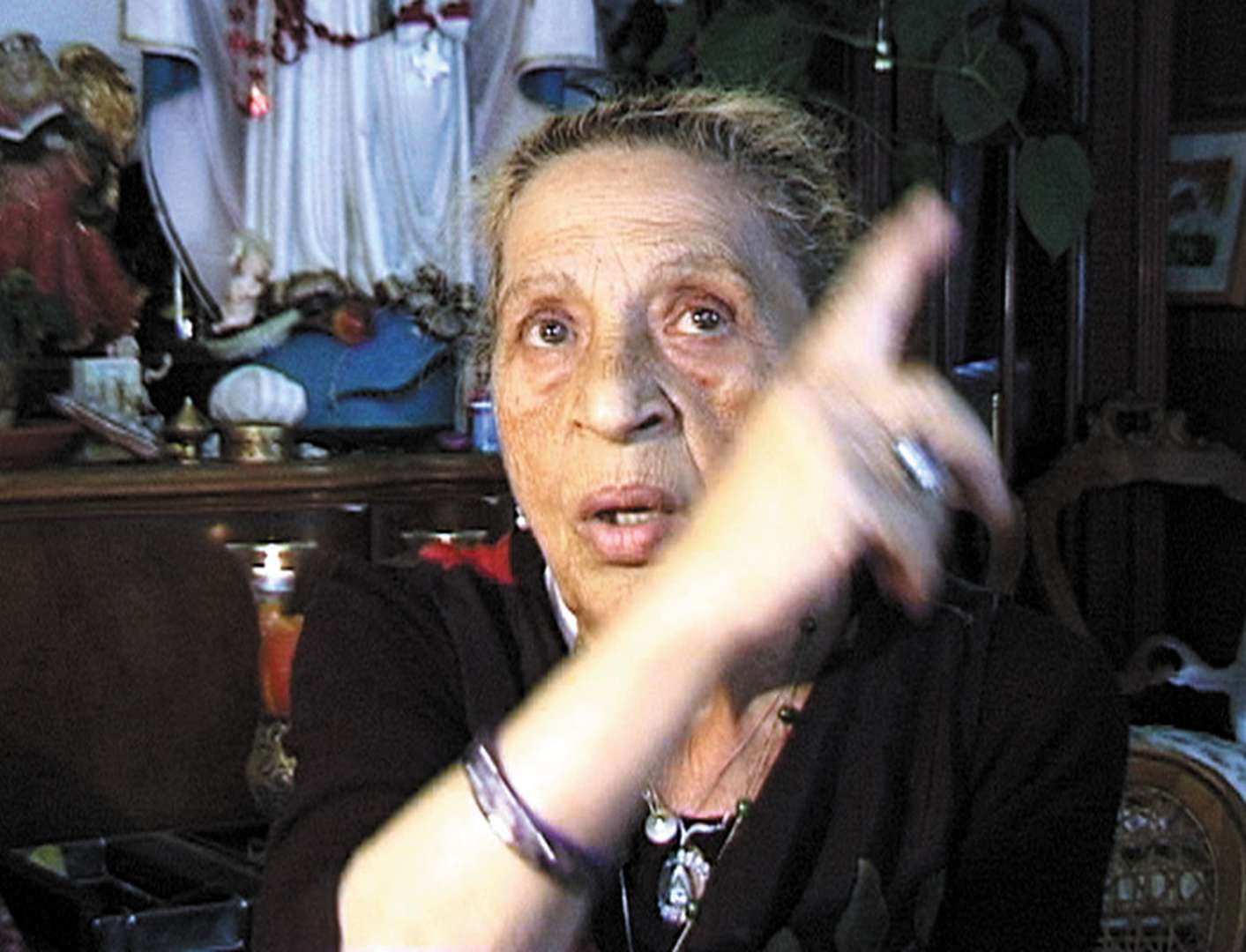
The Green Green Grass Beneath
A Movie about the Holocaust on the Sinti and Roma
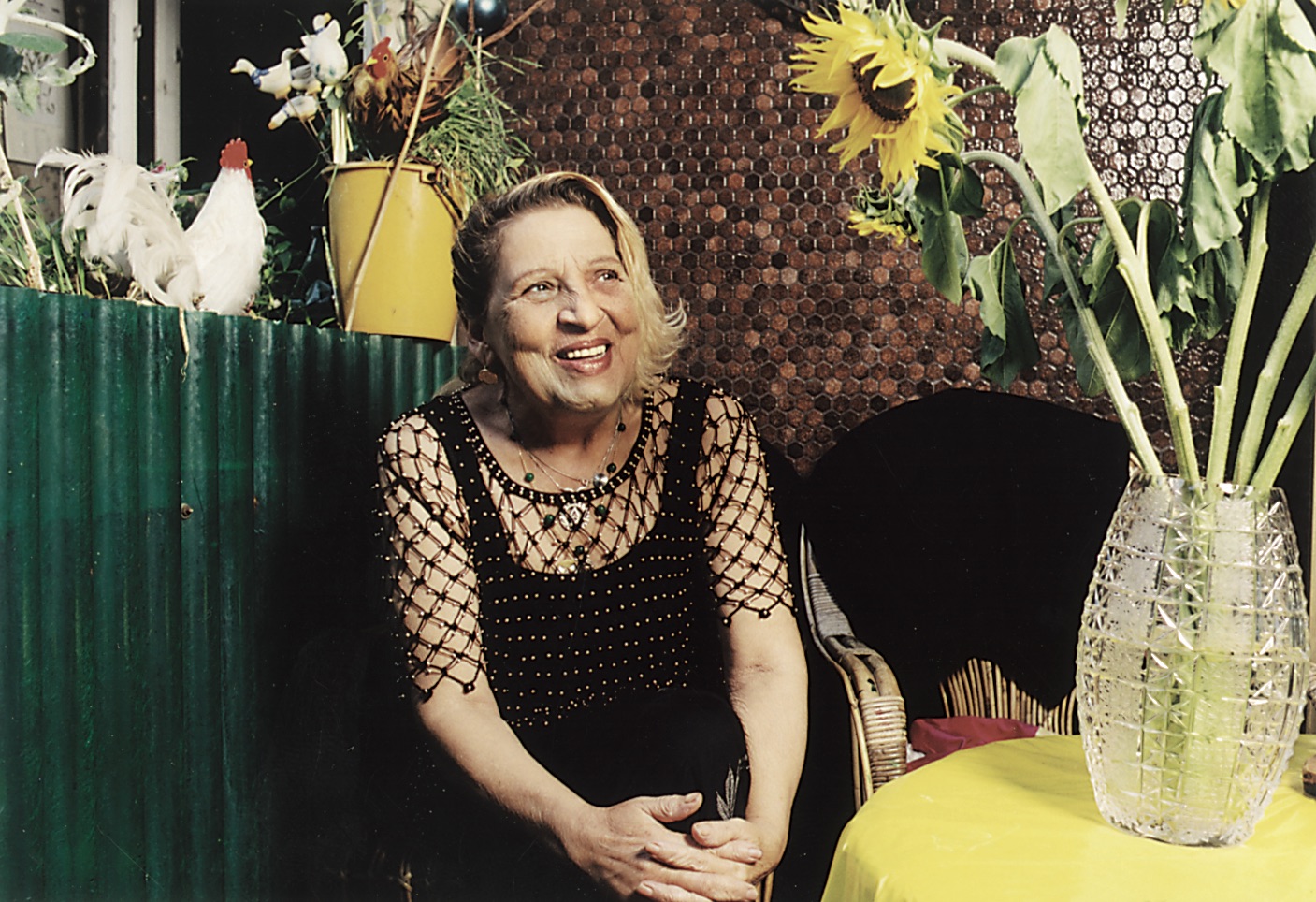
Ceija Stojka
A Movie about the Holocaust on the Sinti and Roma
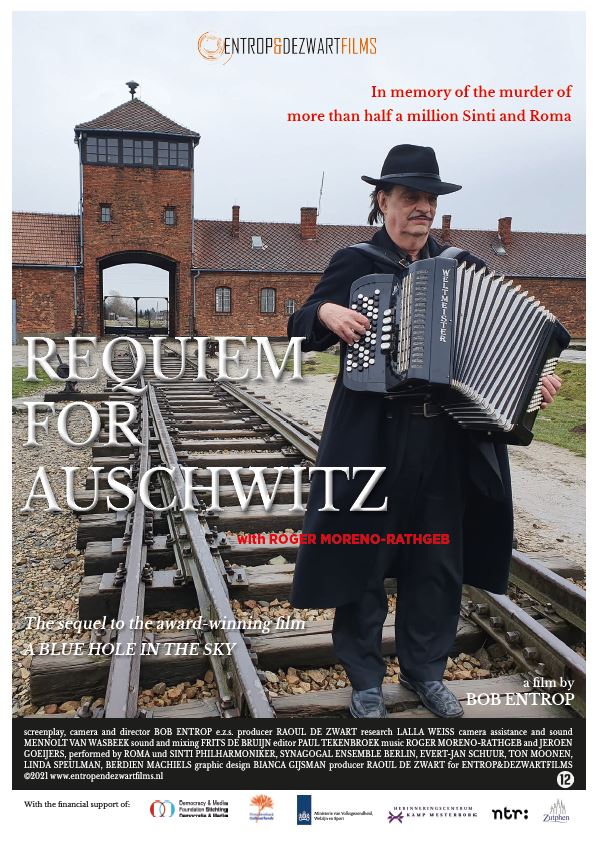
Requiem for Auschwitz
A Movie about the Holocaust on the Sinti and Roma

How I became a Partisan
A Movie about the Holocaust on the Sinti and Roma










